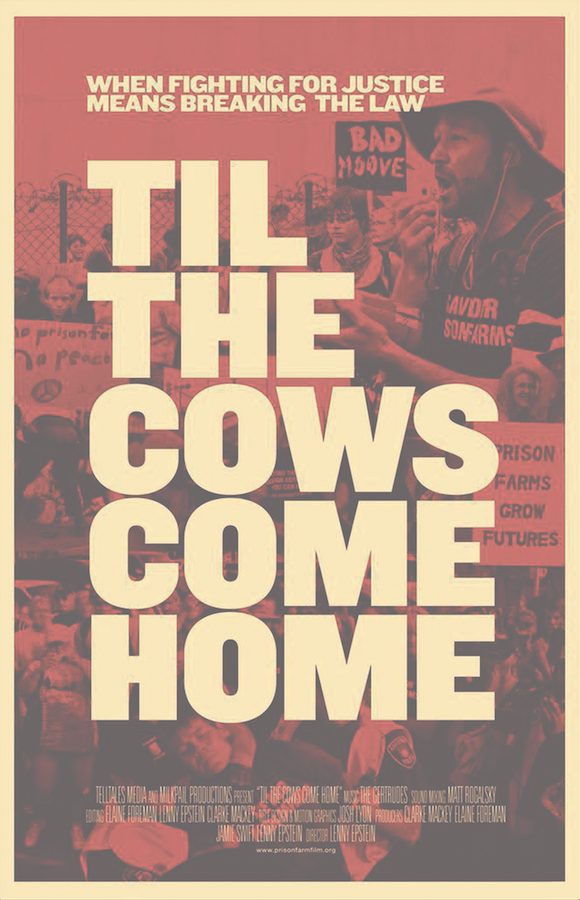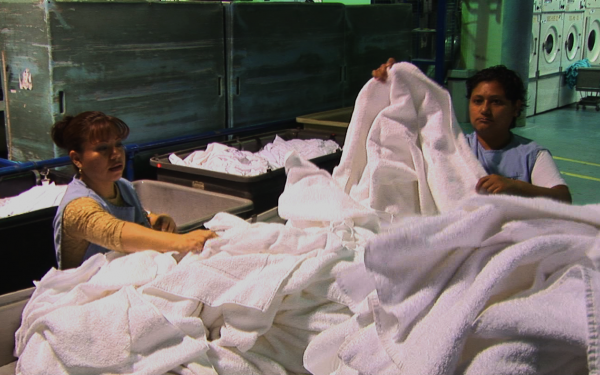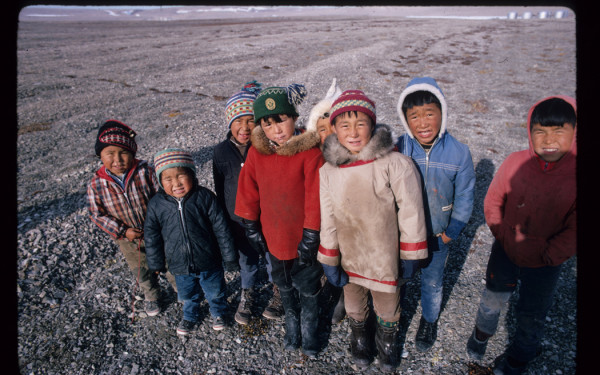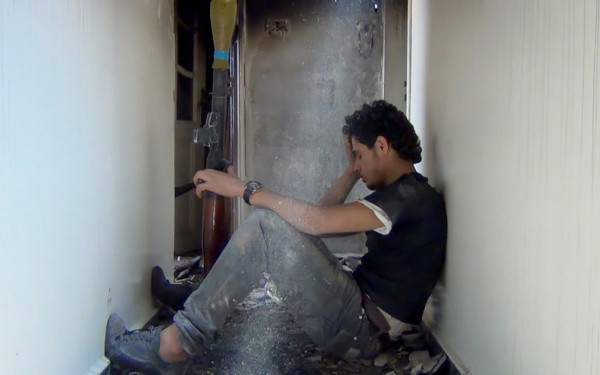Documenting Civil Disobedience
Cinema Politica Nears the End of 2015 Winter Semester with Screening of Til the Cows Come Home
Til the Cows Come Home, is a film that documents the protests in front of Frontenac Prison Farm in Kingston, Ontario in 2010 following the Harper government’s decision to transform the Canadian correctional system and close all of Canada’s rehabilitative prison farms.
The film, screening on April 8 is a must-see for Cinema Politica fans, but also for anyone interested in films that pose challenging questions about social justice and democracy in Canada.
First time feature documentary director Lenny Epstein started producing the film in the summer of 2010, when he realized an important story was unfolding in Kingston. Indeed, for two days during that summer, hundreds of angry protesters attempted to block cattle trucks from removing the cows of Frontenac Prison Farm. Epstein thus decided to document this “extraordinary display of civil disobedience,” and reveal what kinds of things happen when just writing letters and signing petitions is not enough. In 2012, Clarke Mackey, Elaine Foreman and Jamie Swift joined director Lenny Epstein to help realize the film. Together, they spent the following two years finalizing it.
Multiple events culminated in the final blockade in the summer of 2010, the series being set in motion in 2009 when the Harper government made the decision to close all of Canada’s rehabilitative prison farms, citing “economic reasons” (i.e. the farms were not making profit). However, as the documentary reveals, the reality of the situation was far more insidious. The Harper government was attempting to reform Canada’s correctional system and direct its focus on punishment, rather than rehabilitation.
Citizens of Kingston disagreed with the PM’s new direction. To them, closing Frontenac Prison Farm made no sense. The farm supplied milk and eggs for multiple prisons in both Ontario and Quebec and helped prisoners learn new skills and build empathy. Frontenac Prison Farm rehabilitated offenders and reduced their chances of re-offending. In fact, multiple studies show that the only solution making any headway against recidivism in offenders is rehabilitation. The inmate needs to learn to believe in themselves and respect themselves in order to then become a responsible citizen following his release from prison.
The more people learned about the positive impact rehabilitation had on offenders, the angrier they became as the Harper government proceeded with the closing of prison farms. Certain concerned citizens, along with farmers, politicians, and activists decided to confront the issue with the “Save Our Prison Farms” coalition. Together, they organized pressure tactics on the government in order to achieve a consensus and save the remaining prison farms from closing, including Frontenac Prison Farm.
The government completely ignored all of the coalition’s efforts. One last option was available to them: to resort to civil disobedience. The film documents the outstanding display of confrontation and discontent of the protests, which lasted two days, through pouring rain and radiating sunshine.
Issues of democracy and justice converge in this film as it documents what happens when the Canadian public rejects and protests decisions made by the government regarding the justice system.
The documentary asks some challenging questions about the Harper government’s manner of approaching democracy, as well as the Canadian justice system. The protesters, who range from children to elders and from ex-criminals to nuns, are all brought together by one issue, literally linked arm-in-arm to block trucks from taking Frontenac’s dairy herd away.
As a viewer it becomes almost frustrating to see how much the government actually ignores its own citizens concerning such an issue. Hearing the captivating and charming stories certain ex-offenders tell about their stay in the Frontenac Prison Farm adds to the feeling of bafflement concerning the government’s actions. The documentary explores the idea that maybe we have a little work to do before we can call Canada a completely democratic nation (at least under the Harper government). The protesters start chanting during their confrontation with the police, while some of them are getting arrested. The words resonate in your ears during the whole film. “This is what democracy looks like!”
Cinema Politica, as you may already know, is a non-profit organization that screens independent political films and videos made by Canadian and international filmmakers throughout campuses and communities in Canada and abroad. Cinema Politica Concordia is the longest running local of the network. Indeed, since 2004, Concordia has welcomed between 300 and 600 spectators each week to their screenings. Each semester the films presented revolve around different themes that mostly relate to social justice, environmental issues and cultural identity issues. All the films, according to Cinema Politica’s mandate, aim to “bridge political independent filmmaking, local activism and civic education and engagement.”







